Filsafat
We live in an age when using computers has become a normal aspect of daily living. In order to be effective in studies, to fluently interact socially and to succeed in the work place students need to be competent and confident in their use of computers. In addition to being a tool for communication computers can also be used to express creativity. These two aspects are emphasized in our computer curriculum with the recognition that God, the ultimate communicator and perfect Creator, has designed us to communicate well and to express ourselves creatively.
Course Objectives
This course encourages students to think about the ethical implications of how they use computers particularly how their personal use fits in with God’s plan for their lives (ESLR – ET, RUC, SCW). Students will also learn practical computer skills related to study for example how to be discerning and effective when conducting internet research and how to efficiently lay out a document in a word processor to fit with standard referencing systems (ESLR – ET, NLL) . Students will learn strategies for planning, creating and delivering slideware assisted presentations (ESLR – ET, DC). Students will learn; how to distinguish between risky and safe online behavior, how to work with others online, and how to collect, collate and present information in a portfolio format (ESLR – RUC, DC, NLL, ET). Students will understand what a spreadsheet is and when to use one. They will learn how to plan and organize spreadsheets. They will be able to recognize and use a range of spreadsheet functions and formulas and know how to present spreadsheet data in appropriate chart formats (ESLR – DC, ET). Students will learn how to record and manipulate multi-track audio using Audacity (ESLR – DC). Students will be able to create a complex hyperlinked PDF document using Writer. They will understand how one poor moral choice can lead to another one with worse consequences and how repentance can break that cycle and lead to freedom (ESLR – RUC, ET). Students will learn how and why HTML was created considering the ethical issues related to keeping the internet free and open. Students will learn how to create web pages using HTML and CSS (ESLR – RUC, DC, NLL, ET, SCW). Students will be able to create layered computer graphics using various tools and effects (ESLR – DC, ET). Students will understand what computer related careers are available and what some of the ethical issues related to those careers are (ESLR – NLL, SCW).
Textbooks and Materials
- Network linked and internet connected computer suite.
- A Guide to Microsoft Office 2000 Professional, Lawrenceville Press
- OpenOffice/LibreOffice – Office Software Suite
- Mozilla Firefox – Web Browser
- Audacity – Digital Audio Editor
- Microsoft Notepad – Text Editor
- Kompozer – Web Authoring System
- Online Tutorials for OpenOffice and HTML
Time Allotment
50 minutes, 3 days a week.
Course Content
Semester 1
- The Ethical use of Computers
- Internet Research
- Word Processing Skills
- Slideware Presentation
- Online Safety
Semester 2
- Intermediate Spread Sheets
- Multi-track Audio Recording (Audacity)
- Creating a hyperlinked pdf document
- HTML
- Computer Graphics and Drawing (Serif DrawPlus)
- Computer Careers and Ethics
Evaluation
Students will be evaluated using a variety of methods including: Practical exercises, tests, homework assignments, portfolios and group projects.


